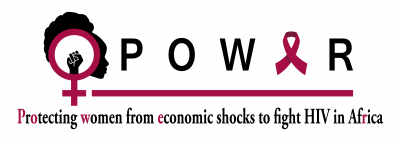Protecting women from economic shocks to fight HIV in Africa
Project Summary
HIV/AIDS is one of the leading causes of mortality globally and the leading cause among women aged 15-44 years. African women aged 15-24 are twice as likely to be infected with HIV than their male counterparts. In Cameroon, one of the countries with the highest gender disparity in HIV globally, adolescent girls are five times as likely to be infected with HIV than boys of the same age.
POWER is based on the assumption that financial needs, alongside biological susceptibility, are the main cause of HIV acquisition among young women in Africa.
We will follow a new cohort of women in Cameroon and recruit 1,500 unmarried adolescent girls and young women aged between 15 to 24 years old.
Over a 1-year period, the study will collect three biobehavioural surveys as well as weekly sexual diaries to measure and understand the role of economic shocks on HIV and sexually transmitted infections (STIs) incidence.
A randomised controlled trial will be embedded in the cohort study to measure the cost-effectiveness of a formal shock-coping strategy to prevent STIs among women in Africa.
Quantitative results will be complemented with evidence generated from 60 in-depth interviews with survey participants in order to understand the channels through which economic shocks affect sexual behaviours.
 Close
Close


